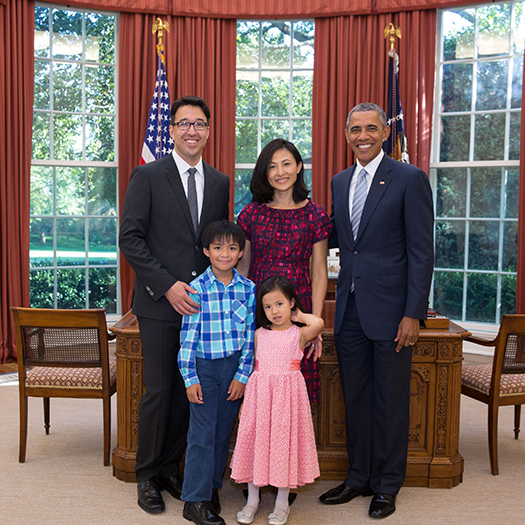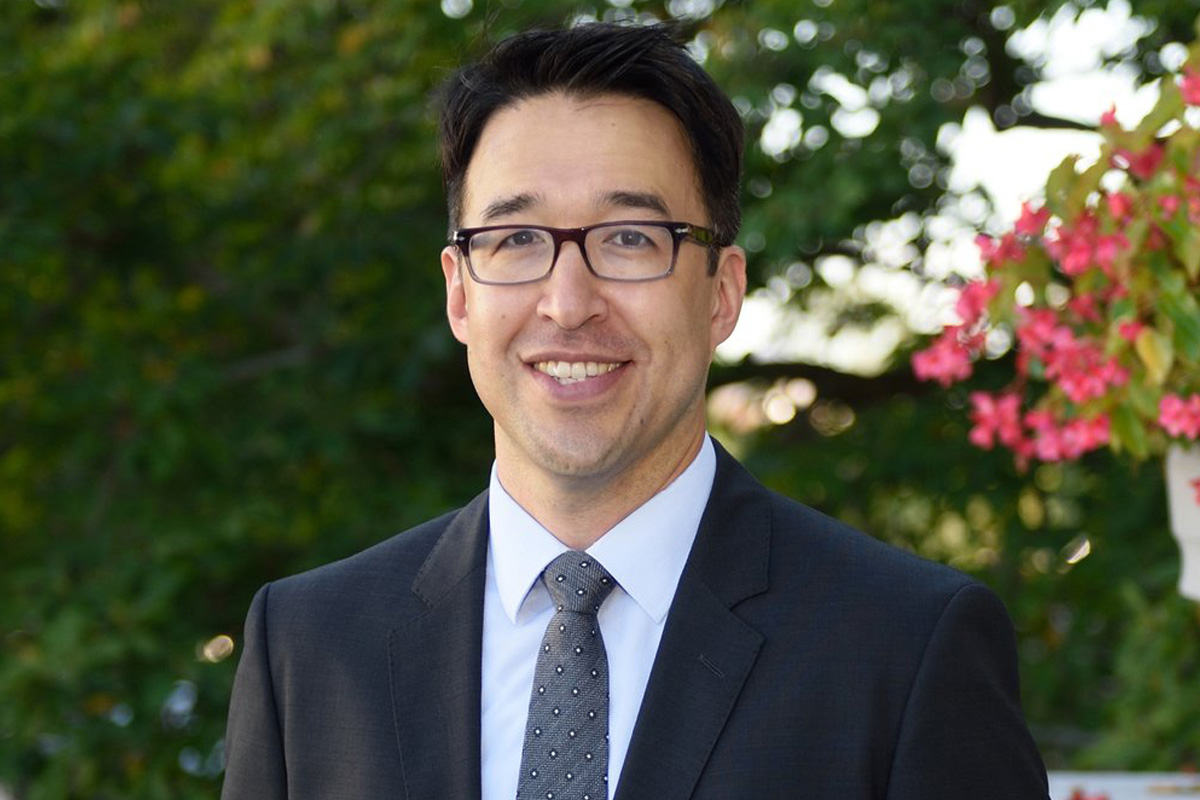The Biden-Harris administration has named Jordan Matsudaira, Associate Professor of Economics & Education at Teachers College, to the position of Deputy Under Secretary of Education, with responsibility for higher education policy.
The appointment is the second major government post for Matsudaira. During the Obama administration, he served from 2013 to 2015 as Senior Economist and then Chief Economist for the White House Council of Economic Advisers. In those roles he worked on labor, education, and safety-net policies and regulations, including raising the minimum wage for federal contractors. He also led a multi-agency team that developed the College Scorecard, a data tool that provides college-specific information on student outcomes.
“The Teachers College community applauds the Biden-Harris administration’s excellent choice of Dr. Matsudaira for this key post,” said TC President Thomas Bailey. “Dr. Matsudaira exemplifies the College’s commitment to the public good. As a fellow economist, I can also attest that he is deeply knowledgeable about the issues facing American colleges and universities and their students during this challenging time — particularly issues relating to education equity and economic disparity.”
“It is profoundly moving and inspiring when members of our superb research and teaching faculty perform public service by serving in government,” said Stephanie J. Rowley, Provost and Dean. “This is a great day for TC, for higher education, and the nation.”
Matsudaira, who joined TC’s faculty in Fall 2018, is taking an unpaid leave of absence to serve in his new role and will remain part of TC’s faculty.
I’m honored by this appointment and excited that President Biden and Vice President Harris have proposed a number of really dramatic reforms to the way that we fund colleges that would expand access and reduce the need to borrow for millions of low-income people.
—Jordan Matsudaira, TC Associate Professor of Economics & Education, newly named Deputy Under Secretary of Education
“I’m honored by this appointment and excited that President Biden and Vice President Harris have proposed a number of really dramatic reforms to the way that we fund colleges that would expand access and reduce the need to borrow for millions of low-income people,” Matsudaira said. “I’m looking forward to helping to make those measures happen.”
On one level, Matsudaira said, the Biden-Harris administration’s approach to education will build on the efforts of the Obama administration.
“There will be a similar focus on expanding access, while strengthening quality standards and requirements to ensure good outcomes for students” he said.

RETURN ENGAGEMENT Jordan Matsudaira previously served in the Obama administration as Chief Economist for the White House Council of Economic Advisers. (Photo courtesy of Jordan Matsudaira)
But, Matsudaira added, “Right now there’s an economic crisis and a public health crisis, which requires a response unlike anything the Obama administration faced. During the Great Recession of 2008, for example, the crisis manifested itself in a very different way. At that time, higher education experienced a flood of people seeking to acquire or burnish skills. Now we’re seeing just the opposite, with enrollments down dramatically, especially among disadvantaged groups that we’ve typically struggled to serve well in higher education. So we need to address the very real health concerns and economic constraints that are keeping students away from college, and to help bring them back.”
To that end, Matsudaira said, the current administration’s agenda includes: making college accessible and affordable; providing emergency aid to colleges to help them through the pandemic and reopen safely in Fall 2021; improving students’ ability to manage what debts they acquire, through improvements in loan servicing, public service loan forgiveness, and income-based repayment; and, in general, sheltering students from “the adverse consequences of debt.”
Dr. Matsudaira exemplifies the College’s commitment to the public good. As a fellow economist, I can also attest that he is deeply knowledgeable about the issues facing American colleges and universities and their students during this challenging time — particularly issues relating to education equity and economic disparity.
—TC President Thomas Bailey
“The president has proposed doubling the Pell grant and passing legislation to make community college attendance free,” Matsudaira said. “He wants to address the heightened concern around student borrowing, in particular so that lower-income students are not unduly burdened.”
Matsudaira made a considerable impact on national policy during his years away from government. In October, a report he co-authored made international headlines. It found that the number of people living in poverty in the United States had grown by 8 million since May 2020 following the expiration of the CARES Act’s unemployment supplement of $600 per week. The report also found that increases in monthly poverty rates had been especially acute for Black and Hispanic individuals, as well as for children. [Read TC’s coverage of the October report by Matsudaira and his coauthors.]
This is a great day for TC, for higher education, and the nation.
—TC Provost and Dean Stephanie J. Rowley
Previous reports had not provided up-to-date estimates of poverty, because the federal government releases its official statistics only once a year. To provide a real-time snapshot, Matsudaira and his co-authors at Columbia University’s Center on Poverty & Social Policy developed a new method to make high-frequency estimates of the poverty rate based on families’ monthly resources. In their report, the team urged “additional income transfers…to blunt further increases in poverty” — a recommendation since followed by Congress.
“I am so pleased that Jordan Matsudaira will serve as Deputy Under Secretary in the U.S. Department Education,” said Thomas Brock, Research Professor and Director of TC’s Community College Research Center. “Joining an already exceptional team, Jordan brings a deep understanding of higher education economics and how to get things done in Washington. For example, the College Scorecard he helped create during the Obama Administration provides information on costs and other factors that students can use to make decisions about which colleges and programs are right for them. It embodies Jordan's commitment to making government data open and accessible to all, and using information to improve people’s lives.”
Joining an already exceptional team, Jordan brings a deep understanding of higher education economics and how to get things done in Washington.
—Thomas Brock, Director of TC’s Community College Research Center
Prior to serving in the Obama administration, Matsudaira was Assistant Professor of Public Policy and Economics at Cornell University, a visiting assistant professor in the economics department at Princeton University, and a Robert Wood Johnson postdoctoral fellow in health policy research at the University of California, Berkeley. He also has served as a nonresident fellow at The Urban Institute in Washington, D.C., and a fellow at the Rockefeller Institute of Government in Albany.
